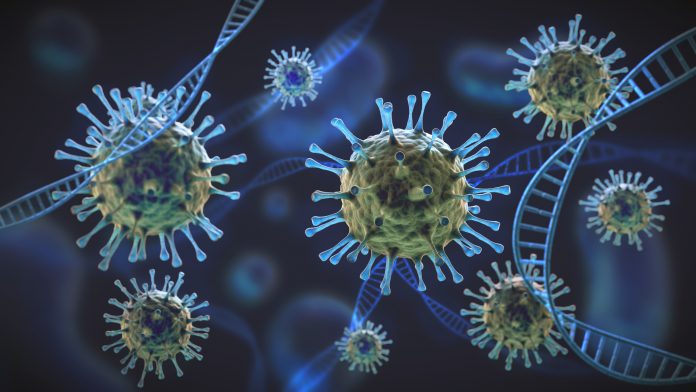
Research led by the Medical College of Georgia at Augusta University has identified seven structural genetic variants that appear to predispose carriers to developing more severe COVID-19 after infection with the SARS-CoV-2 virus.
These findings, carried out by members of the COVID-19 host genome structural variation research consortium, add to others carried out since the start of the pandemic showing links between host genetics and risk for COVID-19.
Although much more is known now than at the start of the pandemic, the reason why some individuals develop much more severe cases of COVID-19 than others is not always entirely clear.
“Millions of people get infected, and fortunately only a very small percentage become symptomatic, and a very small percentage of the symptomatic individuals require oxygen and a small percentage of those individuals are hospitalized and die,” said lead researcher Ravindra Kolhe, a clinician and researcher at the Medical College of Georgia at Augusta University, in a press statement. “But even a small percentage amounts to millions of people and that is too many.”
Structural variants have an important impact on risk for various diseases, but many studies are not set up to detect them. To investigate whether structural variants contribute to disease severity in COVID-19 patients, Kolhe and colleagues carried out optical genome mapping on 52 severely ill COVID-19 patients. Optical mapping involves restriction enzyme sites along the DNA and using staining to create a unique ‘map’ of a sequence for a given person or organism.
As reported in the journal iScience, the team identified seven structural variants in nine of the patients in the cohort. These variants impacted 31 genes linked with innate immunity, inflammatory response, and viral replication including STK26 and DPP4.
“One finding, a rare structural variant leading to partial duplication of the TLR negative regulator, STK26, and the coincident upregulation of STK26 is especially intriguing. Remarkably, this finding led us to discover that, relative to levels in asymptomatic COVID-19 cases, STK26 was upregulated in all 13 tested patients with severe COVID-19, with the highest expression in the patient with the partial duplication,” write the researchers.
“Another rare structural variant leads to a partial deletion of DPP4, associated with very low sDPP4 [cleaved product of receptor] levels in the respective individual. Intriguingly, we identified low sDPP4 levels in all severely affected COVID-19 patients in line with previous literature.”
The researchers acknowledge that the cohort was small and that their findings need to be confirmed, but conclude that their findings suggest that rare structural genetic variants may help predispose some individuals to developing more severe COVID-19.
The consortium currently has a membership of 34 research organizations, including Duke and Columbia universities, the National Cancer Institute and the New York Genome Center. Its goal is to investigate how structural variants impact individual responses to infection with the COVID-19 virus.













